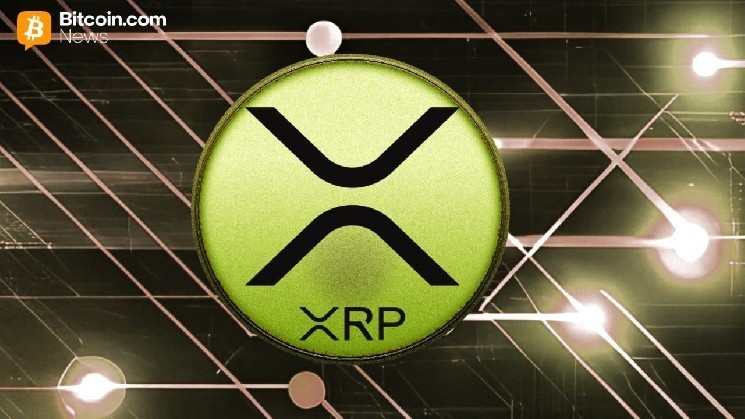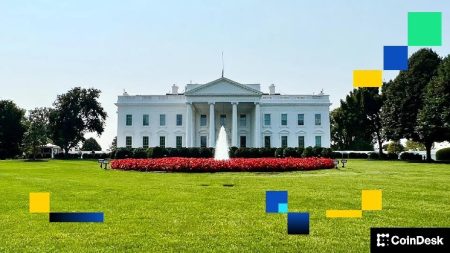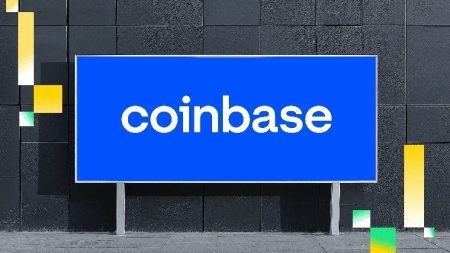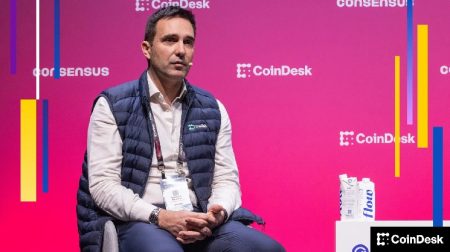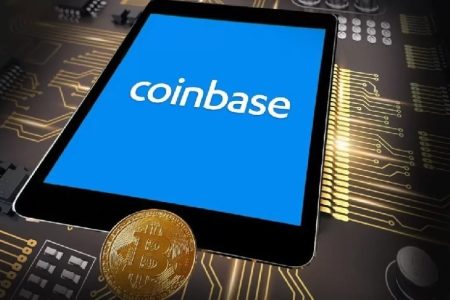Brazil’s Tokenization Revolution: How VERT Capital’s XRP Ledger Milestone Signals a New Era in Latin American Finance
Institutional Blockchain Adoption Transforms Brazil’s Financial Landscape
Brazil is rocketing into the future of finance as institutional tokenization explodes across Latin America’s largest economy, marking a decisive shift from experimental projects to mainstream adoption. The country’s financial sector is witnessing an unprecedented transformation as regulated digital assets gain traction among major institutions, positioning Brazil as a global leader in blockchain-based financial innovation. This evolution represents more than technological advancement—it signals a fundamental reimagining of how financial assets are created, traded, and managed in one of the world’s most dynamic emerging economies.
At the forefront of this revolution stands VERT Capital, whose recent expansion on the XRP Ledger (XRPL) and XRPL EVM Sidechain highlights the accelerating pace of institutional blockchain adoption. On October 24, Ripple announced that just three months after launching its pioneering on-chain structured credit platform, VERT Capital has successfully completed its second tokenized transaction through their strategic partnership. “The new issuance expands the platform’s scope and brings a new class of regulated credit on-chain, showing that tokenization in Brazil is no longer an experiment, but an emerging market reality,” Ripple emphasized in their announcement. This milestone transaction represents Brazil’s first tokenized FIDC (Fundo de Investimento em Direitos Creditórios) backed by public-pension receivables—a particularly secure asset class directly connected to government pension payments.
Scaling Digital Asset Infrastructure: From Millions to Billions
The scale of VERT Capital’s operation illustrates the rapidly growing appetite for tokenized assets among Brazilian institutional investors. The fund currently manages an impressive portfolio exceeding BRL 200 million (approximately $40 million) in assets, but industry analysts are watching closely as projections indicate potential growth to BRL 1 billion as institutional participation continues to accelerate. This exponential growth trajectory reflects both increasing confidence in blockchain-based financial instruments and the maturing regulatory environment that enables their adoption at scale.
Through its strategic collaboration with fintech innovator BYX, VERT Capital has articulated plans to tokenize additional funds before year-end, creating a comprehensive ecosystem that seamlessly integrates structured-credit origination with blockchain-powered asset management. This expansion strategy leverages the unique capabilities of distributed ledger technology to enhance transparency, reduce settlement times, and democratize access to previously illiquid asset classes. The platform’s ability to record lifecycle events, documentation, and payment transactions directly on-chain enables near-real-time auditability while maintaining full compliance with Brazil’s sophisticated securities regulations. This balance between innovation and regulatory adherence has become a hallmark of Brazil’s approach to financial technology advancement.
Regulatory Harmony: How Brazil’s LEAP Initiative Enables Blockchain Innovation
What distinguishes Brazil’s tokenization movement from similar efforts globally is its harmonious integration of cutting-edge technology with comprehensive regulatory oversight. Through the Brazilian Securities and Exchange Commission’s LEAP (Laboratory of Financial and Technological Innovation) regulatory initiative, financial innovators like VERT Capital can deploy public blockchain infrastructure within a clearly defined supervisory framework. This approach creates a uniquely favorable environment where transparency, regulatory compliance, and technological interoperability coexist to foster sustainable market development.
“Using the XRPL and its EVM Sidechain, VERT’s digital-credit platform records lifecycle events, documentation, and payments directly on-chain, enabling near-real-time auditability while complying fully with Brazilian securities regulations,” Ripple explained in their announcement. This operational model demonstrates how blockchain technology can enhance rather than circumvent regulatory objectives, creating financial products that simultaneously satisfy institutional risk management requirements and regulatory transparency mandates. Brazil’s regulators have taken a notably progressive stance, viewing distributed ledger technology as a tool to strengthen market integrity rather than a threat to established financial order—a perspective that distinguishes Brazil from many other major economies still grappling with appropriate regulatory frameworks for digital assets.
From Local Innovation to Regional Leadership
Brazil’s leadership in tokenized finance has significant implications for the broader Latin American region, where financial inclusion remains a persistent challenge. As the region’s largest economy pioneers scalable, compliant blockchain solutions, neighboring countries are increasingly looking to Brazil’s model as a blueprint for their own digital asset regulations and infrastructure development. This regional influence amplifies the importance of VERT Capital’s achievements beyond Brazil’s borders, potentially catalyzing a wave of similar initiatives throughout Latin America.
The incorporation of pension receivables as collateral for tokenized securities is particularly noteworthy, as it demonstrates how blockchain technology can unlock value from traditionally stable but somewhat illiquid government-backed cash flows. By tokenizing these assets, VERT Capital has created a financial instrument that combines the security of government-backed revenue streams with the efficiency and transparency of blockchain technology. This innovation addresses a persistent challenge in emerging markets: how to create financial products that are simultaneously secure enough for risk-averse institutional investors yet liquid enough to attract diverse market participants. The success of this approach could establish a template for similar instruments across other asset classes and jurisdictions, further cementing Brazil’s position as an incubator for financial innovation.
The Future of Tokenized Finance in Brazil and Beyond
Looking ahead, Brazil’s tokenization movement appears poised for continued expansion across additional asset classes and financial products. As institutional comfort with blockchain-based financial instruments grows, industry experts anticipate the tokenization of everything from real estate and infrastructure investments to agricultural commodities and carbon credits—all areas where Brazil possesses significant natural advantages. The potential market for tokenized assets in Brazil alone could reach hundreds of billions of dollars over the coming decade, creating new opportunities for both domestic and international investors seeking exposure to Latin America’s largest economy.
VERT Capital’s successful implementation of regulated tokenized securities on the XRP Ledger represents more than a technological achievement—it signals a fundamental shift in how Brazil’s financial markets will operate in the digital age. By combining blockchain efficiency with robust regulatory compliance, Brazil is creating a new paradigm for financial innovation that balances technological advancement with market stability and investor protection. As other emerging economies observe Brazil’s success, the country’s approach to tokenization may well become a template for similar initiatives worldwide, solidifying Brazil’s unexpected emergence as a global leader in regulated digital finance. For investors, regulators, and financial institutions worldwide, Brazil’s tokenization revolution offers valuable insights into how traditional finance and blockchain technology can converge to create more efficient, transparent, and inclusive capital markets.



